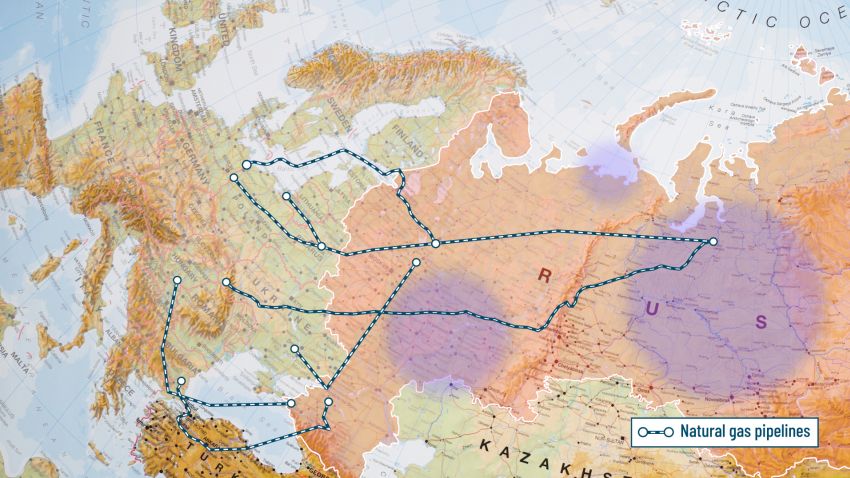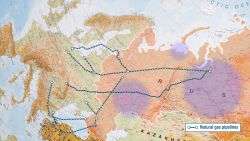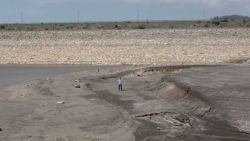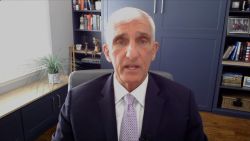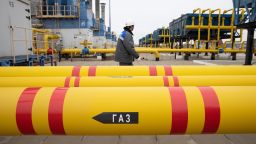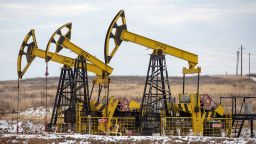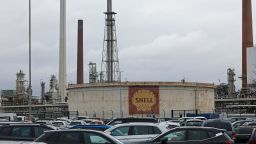Nine European and US fossil fuel companies have paid a collective $15.8 billion to Russia in various forms of taxes and fees since the country annexed Crimea from Ukraine in 2014, a group of NGOs said Thursday.
The groups, Global Witness, Greenpeace USA and Oil Change International, used data from the Oslo-based Rystad Energy, an independent energy research firm, to calculate how much money oil and gas companies based in North America and Europe had sent to the Russian state. They looked only at companies with exploration and production operations in Russia.
The data was shared amid criticisms that the West’s purchases of Russian coal, oil and gas – which are largely state-owned assets – have helped fund Russia’s war in Ukraine. These payments underscore how much capital Western energy companies that chose to continue operating in Russia after Crimea was annexed have transferred to the state.
The groups looked at royalties, export duties, bonuses, taxes and fees, as well as “government profit oil,” which includes the value of any actual oil that the companies may have given to Russia to come up with the $15.8 billion figure.
They came up with a list of nine companies from these regions that had paid the most money. All those payments were legal, and other multinational companies outside the energy sector have also have made similar kinds of payments to the Russian state.
Shell, which is registered in the UK, sent $7.85 billion, the highest amount of the companies listed, the groups said in a statement, shared first with CNN. It was followed by US-based ExxonMobil ($2.81 billion). Two companies registered in Germany, Wintershall and Wintershall DEA, which have since merged, paid a combined total of $2.86 billion. BP, the British multinational oil and gas company, paid $817 million, the data from Rystad shows.
The three groups that compiled the data said that while the $15.8 billion figure was substantial, the companies identified were also responsible for tens of billions of dollars more flowing to the Russian state because of stakes they hold in Russian oil and gas companies.
BP until recently held a 19.75% stake in the Russian energy company Rosneft, for example. Rosneft paid $353.16 billion to Russia in taxes, fees, royalties and oil profit between 2014 and 2021, Rystad’s data shows.
While BP may not have paid that money directly to Russia, Murray Worthy, gas campaign leader at Global Witness, said that it still bore some responsibility for the payments.
“The true amount that these companies are responsible for paying to Russia is much closer to the $100 billion mark, but it is obscured by their stakes in Russian companies. We believe that BP alone are responsible for $78.4 billion going to the Russian government through the stake in the oil and gas giant Rosneft it says it held until just a few weeks ago,” he told CNN. He was referring to payments during the period between Russia’s annexation of Crimea in 2014 and the end of 2021.
In a statement, he added: “The Russian energy industry is Putin’s biggest earner and companies like BP that (continued to do business with Russia in spite of) … the Crimean invasion, continuing to support money pouring into his war chest, should surely be questioning whether they now have Ukrainian blood on their hands.”
BP announced it would give up that shareholding just days after Russia invaded Ukraine in February 2022. A number of other fossil fuel companies have since followed.
In an email to CNN, BP spokesman David Nicholas said that the company did not recognize the $78.4 billion figure and explained that the only money BP paid the Russian state directly was $350 million in taxes for the six years between 2015 and 2020. The spokesperson was unable to provide data for the whole eight year period.
“On February 27 we announced that we will exit our shareholding in Rosneft, that the two BP-nominated directors are resigning from its board with immediate effect and that we will exit our other businesses in Russia with Rosneft,” Nicholas said.
BP now faces a potential loss of $25 billion related to its exit.
Worthy said that while BP might deny responsibility for Rosneft’s payments to the Russian state, “it has always been more than happy to benefit from the billions that have flowed from its involvement in the company.”
While the dataset focused on payments made mostly through taxes and fees, much more money flows from the West to the Russian state’s coffers in actual oil and gas purchased – which is used for everything from gas for home heating to fuel for cars. The true amount of money that goes from oil and gas companies in the West to the Russian state would be much higher than any amount paid in taxes and fees.
“So when Rosneft sells its products for export, those sales transactions are the way that it earns most of its money,” said Alexandra Gillies, an advisor to the Natural Resource Governance Institute (NRGI), which focuses on resource-rich countries achieving sustainability.
According to a database by NRGI, Rosneft transferred $58.6 billion to the Russian state in 2019 alone, the last year before the pandemic.
Gillies said that while Western companies choosing to exit Russia was a step in the right direction, it should have come much sooner.
“It took this invasion of Ukraine for Western oil companies to say, ‘You know what? We don’t want to enable what this regime is doing anymore.’ They should have made that call much earlier with the invasion of Crimea, or with the repressive nature of the Putin regime, or with the Putin regime interfering in US elections, or poisoning opposition figures, including on UK soil,” Gillies said.
“There were so many moments over the past few years that should have led Western companies to divest from their cooperation with the regime.”
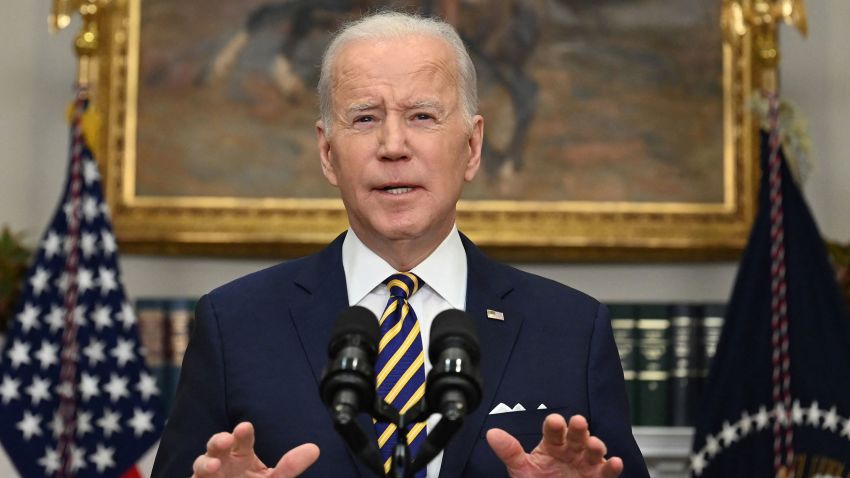
The other four companies listed in the NGOs’ statement are France-based TotalEnergies ($568 million); Norway-based Equinor ($455 million); Austria-based OMV ($246 million) and Switzerland-based Trafigura ($202 million).
Rystad told CNN that its datasets were based on estimates derived from limited reporting available on taxes.
TotalEnergies also has stakes in Russian oil and gas companies that have paid hundreds of millions of dollars more to the government, according to Rystad data.
CNN reached out to all companies listed, as well as Rosneft, for comment. ExxonMobil did not respond to CNN’s request.
Nikita Patel, a spokesperson for Shell, told CNN: “The world’s reliance on Russia for energy has built up over many years through decisions taken by governments as well as businesses. As Shell is one of the biggest global suppliers – particularly in Europe which depends heavily on Russia for fuel – the money we have paid reflects the large number of customers we serve, as you would expect.”
On March 8, Shell published a press release in which the company announced it would withdraw its involvement in all Russian fossil fuel activities “in a phased manner” and stop purchasing Russian crude oil.
Shell CEO Ben van Beurden also apologized in the statement after the company was criticized for buying a cargo of Russian crude oil in early March while other companies and traders were shunning the product following Russia’s February invasion.
TotalEnergies announced Tuesday it would stop buying Russian oil by the end of the year but that it would continue to buy Russian gas. The company did not respond to CNN’s request for comment.
Equinor has shut down its operations in Russia and says it has stopped trading Russian oil. Its spokesperson, Ola Morten Aanestad, did not confirm the $455 million figure in an email to CNN, and said it was “is too early to be specific on the exit process,” when asked whether the company would stay out of Russia permanently.
An OMV spokesperson did not comment on the amount of money it had transferred to Russia when asked by CNN, and pointed to a recent statement in which the company said it was “reevaluating its engagement in Russia.”
Wintershall DEA told CNN the company was “not in a position to verify the figures presented to us” and that it “always conducted our business in compliance with all applicable laws.”
A Trafigura spokesperson said the company did not pay anything to the Russian government “arising from production of fossil fuels.” The company has a 10% stake in the Vostok Oil project, of which Rosneft is the majority shareholder. The spokesperson said “no further monies have been paid” since the acquisition of the stake in 2020. “Trafigura has not received any dividends or similar payments from its shareholding in Vostok Oil.”
Lorne Stockman, Research Co-director at Oil Change International, said the world must now avoid looking to other autocratic regimes to replace the fossil fuels they are shunning from Russia.
“Fossil fuels are the currency of despots, dictators, and warmongers. Our global reliance on oil and gas is not only killing our planet, but also making the world a less safe and equal place. Big Western polluters like BP and Shell have been all too happy to work in countries with despicable human rights records for over a century,” Stockman said.
“Now is the moment to end the fossil fuel era.”
This story has been updated with a response from Shell.

